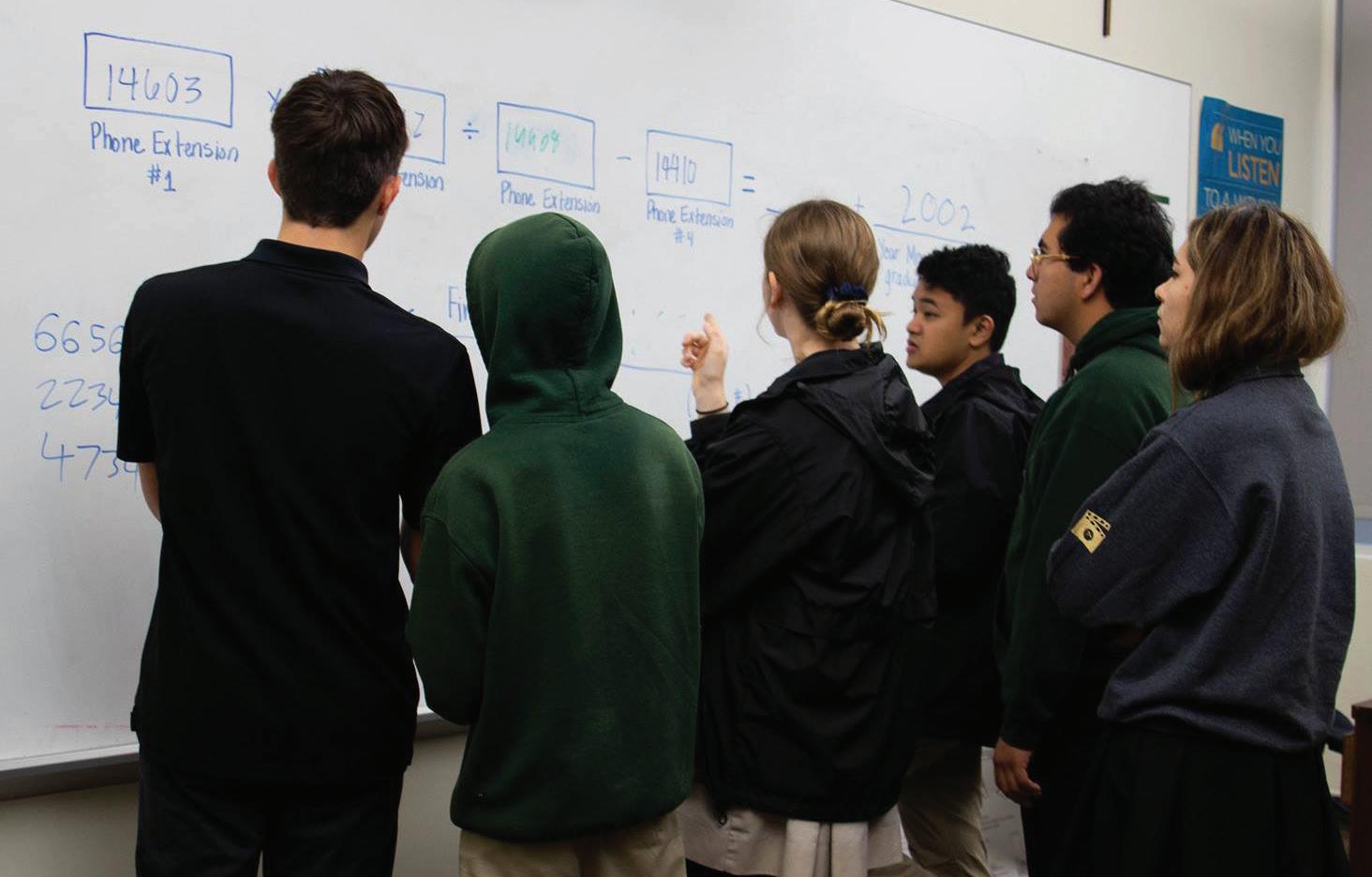
2 minute read
CalTech Graduate Student Visits AP Chemistry Class
In 2018, the Nobel Prize in Chemistry was awarded to Frances H. Arnold, an American chemical engineer, for pioneering the use of directed evolution to engineer enzymes. Dr. Arnold currently serves as the Linus Pauling Professor of Chemical Engineering, Bioengineering and Biochemistry at the California Institute of Technology (CalTech) in Pasadena, California. Providence’s AP/ Honors Chemistry and Nutrition teacher, Ms. Rebecca Poliner, wrote to Dr. Arnold to congratulate her on her award and in a long-shot, extend an invitation to speak to our AP Chemistry students. Dr. Arnold responded to Ms. Poliner, explaining that she was, understandably, quite busy with engagements but that she would be happy to send a member of her team who worked on directed evolution under her direction.
On Wednesday, January 23, team member Patrick Almhjell, a Ph.D. graduate student in the Arnold Lab at CalTech, spoke to Mrs. Poliner's AP Chemistry class. Mr. Almhjell talked about his experience and journey thus far. He detailed the path he took to becoming a graduate student, the realities of pursuing a Ph.D., working in a research lab, and the actual science of what they
Advertisement

do. He spoke about how his research lead him to the Arnold Lab and began with optogenetics, which is a biological technique that involves the use of light to control cells in living tissue. He quickly became frustrated when he discovered that a key compound in his research, noncanonical amino acids, were extremely expensive ($2,000/g). Patrick joined the Arnold Lab as Dr. Arnold’s technique of directed evolution enabled him to make these molecules himself, for a fraction of the cost. One of the greatest challenges that biochemists face is how to effectively “design” new proteins. Arnold’s method of directed evolution introduces mutations into “parent” enzymes and then selects for those enzymes that have the desired trait.
Mr. Almhjell also shared his life experience, both in and outside the lab. He spoke about the value of failure, persistence, and life balance in his life. The Arnold Lab graduate student shared how important it was for him to follow his passions when applying to school, stressing the importance of applying to schools and labs out of genuine interest and not only because of the name or prestige. Mr. Almhjell impressed the importance of getting back up despite inevitable setbacks. He showed them that there are more ways to use a science education than a path into medicine. He even reflected with the students on how skateboarding shaped him as a scientist. The P.h.D student also described the role of collaboration, seeing it more than just competition citing his experience within the Arnold Lab.
Ms. Poliner and her AP Chemistry students learned so much from all the experience and wisdom he shared. We are thankful for the time and experience that Dr. Arnold and Mr. Almhjell provided for our faculty and students.










